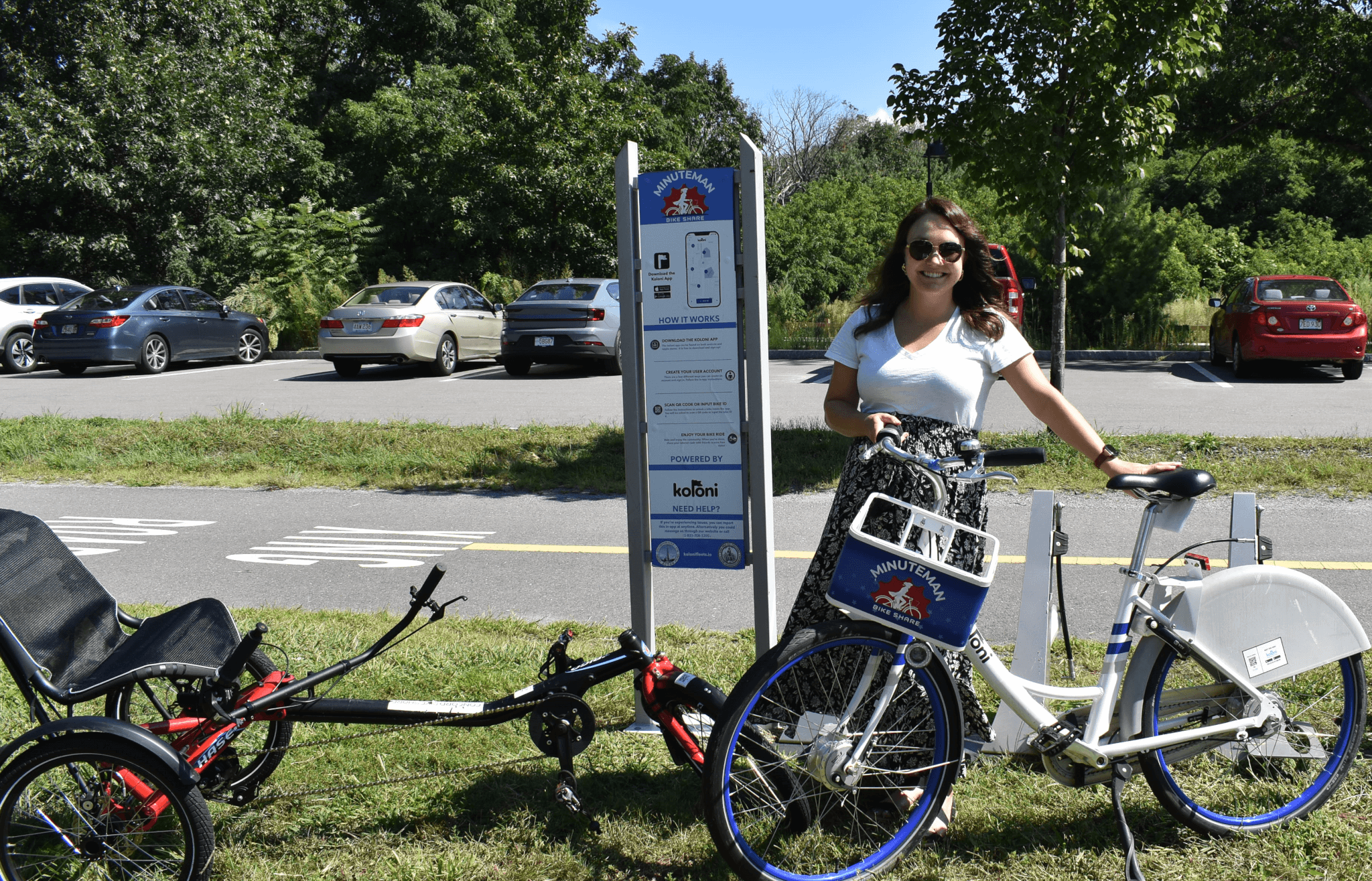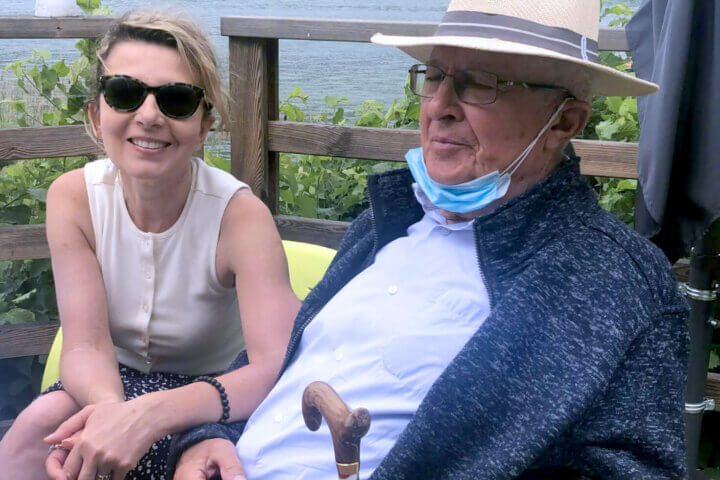Instead of just running an errand, why not have some fun doing it? Bike Share is back, bigger than ever, and it’s not just for the rail trail.
Go to a store or to the train station for your commute instead of your car. If you live in the right area, you could use a bicycle — and not even have to own it.
The new regional Minuteman Bike Share Program allows you to grab a bike from the center, or along the Bruce Freeman Rail Trail in West Concord near the bridge over Nashoba Brook, or in Acton’s East Village or Brook Street.
“It’s a wonderful program,” said Erin Stevens, senior town planner in Concord. “The weekends that are beautiful, the numbers skyrocket.”
It’s too soon to see all the trends — Acton’s two bike share areas just opened at the beginning of August — but many of the trips are one-way, she said.
While most of the bikes are used along the rail trail, some are being pedaled to shopping areas.
The bikes in the center are often used to go to Walden Pond, the North Bridge, Lexington and Concord. “It’s great for tourism,” Stevens said. Users can secure the bikes while they are exploring, using a lock on the bike, so it is still there to ride to the next stop.
New this year are two adaptive bikes, reclined three-wheelers that are easier for people with balance or back issues. They are usually at the West Concord Station, she said, “Not that they have to stay there.”
Yes, you can use a bike and return it to a different place. The stations in Concord have racks for the bikes, and in Acton, the bikes are returned to a geofenced area. The user puts them in the right place and ends the rental on the app to return them.
The other 20 bikes, all two-wheelers, are all the same size and can be adjusted to fit the rider.
Using the Bike Share eliminates another headache of riding a bike: maintenance. A bicycle mechanic checks the bikes regularly and will come out the next day if an issue is reported.
The program was piloted in Concord in 2018, but the company went bankrupt during the COVID-19 pandemic and Concord suspended the program, Stevens said: “Last year we tried it again and people started to show interest.”
To rent a bicycle, download the Koloni app and go from there. Rentals cost $2 per hour.
Renters must be 18 or older and are encouraged to follow the rules of the road (or trail, as the case may be). Children’s bikes aren’t available through the program.
Riders are expected to supply their own helmets.
Depending on the weather, the bikes go out at the beginning of April and are available through the end of November. “We don’t want any accidents with ice and snow,” Stevens said.
Looking ahead to the 250th Patriots Day celebrations in 2025, Stevens sees bike rentals as potentially part of the transportation picture, along with temporary buses and other options.






